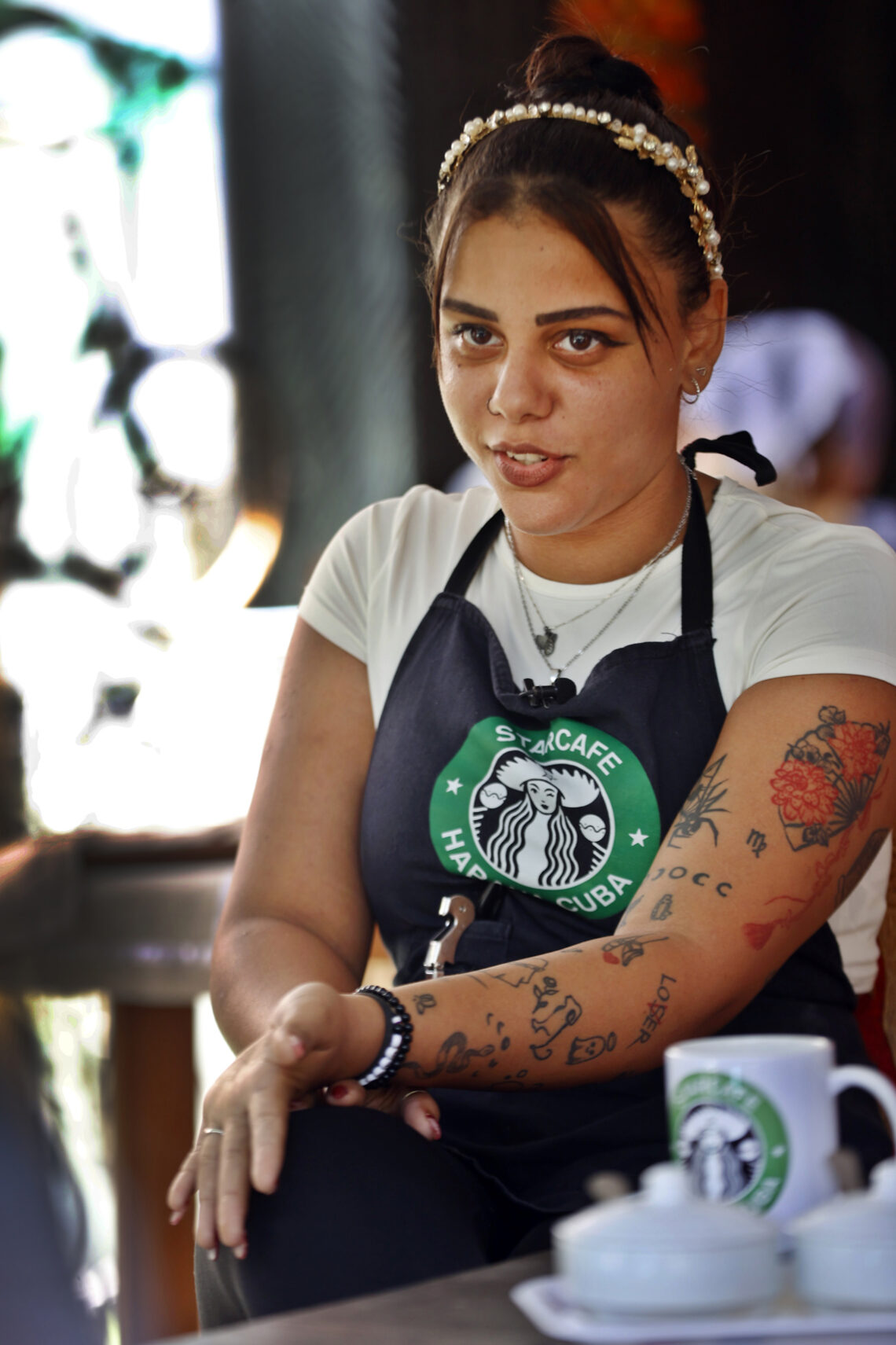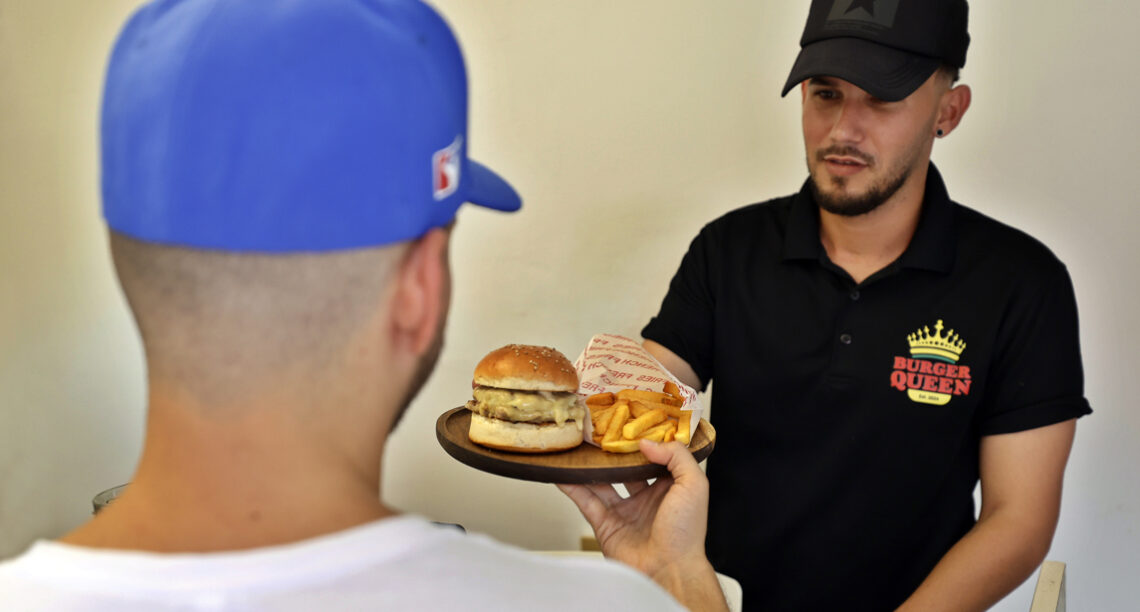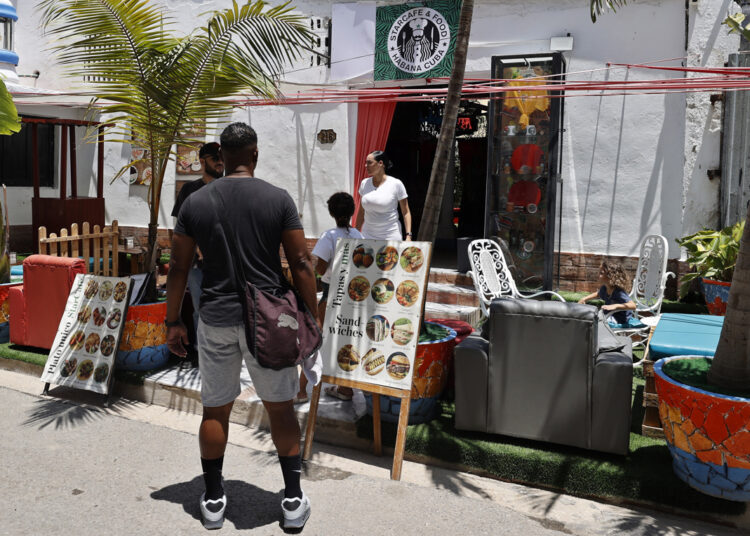Barista Melisa García, wearing a green apron with a wavy-haired mermaid logo in the center, hands a Frappuccino to the customer. The cup bears the customer’s name, but she still called out the name before handing it over.
The scene is universally recognizable. But, at least in this case, it’s different: this isn’t one of the many Starbucks coffee shops scattered around the world, but Starcafé, in the heart of Havana.
Here, Cuban music plays in the background instead of jazz, the cold sandwiches at the counter are replaced by menu items and there are no hipsters occupying every seat with their Apple laptops.
Although these differences are much harder to notice at first glance, what makes the place striking is that there are no U.S. franchises on the Caribbean island.
Despite this particularity, in recent years, private establishments inspired by the most famous U.S. chains or featuring signature dishes from these establishments on their menus have begun to flourish.
Starcafé, opened in 2023 and located across from the iconic Bodeguita del Medio, is perhaps one of the best known. It’s also the most “Instagrammable,” according to García.

“The videos have gone quite viral… we’re known for the reels. A lot of young people, who are influencers, come and review both the coffee and the food,” she says with an infectious smile.
None of the cafeteria workers were surprised by the rush of Havana residents under 35 who immediately came to take a selfie with their Starbucks-style cups, like their relatives who live in Florida do.
The proliferation of this type of establishment was unthinkable just a few years ago. But García maintains that, “like everything, times change.”
Openings
Since the triumph of the revolution in 1959, but especially after Washington began imposing sanctions against the island, the possibility of large U.S. chains establishing themselves in the country began to fade.
However, the arrival of mobile internet in 2018 and the boom of the private sector — SMEs, banned in 1968, were reopened in 2021 — have led to a timid, though increasingly evident, opening toward global trends in the socialist country. This has been especially true with the participation of entrepreneurs straddling the United States and Cuba in some businesses.
Although it has been a simmering change, in recent years it has ceased to be an anomaly, for example, seeing people dressed up for Halloween in October, with houses and establishments decorated with ghostly decorations, or seeing more than one Santa Claus in December.
This opening, after decades of isolation, has raised some eyebrows in the most secretive sectors of the ruling party, who have criticized these trends in the state press. “A practice of cultural colonization alien to our idiosyncrasy,” the newspaper Granma once headlined.
A different experience
Starcafé isn’t the only place inspired by global brands. In 2024, a KFC-style restaurant also opened in Havana, with a touchscreen for ordering fried chicken combos with a soda and fries, and a hamburger restaurant called Burger Queen.
“It’s difficult for Cubans to leave Cuba. And since we’ve had the internet, we’ve had much more access to social media and to consuming things from abroad. And that always makes you curious…. In a way, these types of businesses, which are inspired, to a greater or lesser extent, by those places, offer Cubans a chance to live that experience,” says Andy García, a partner at Burger Queen.

This fast-food restaurant started with a simple but effective idea: “We think about what’s out there in the world. What makes you think of a hamburger? Of course, there’s Burger King,” he says.
Melisa García and Andy García agree that there’s also an “aspirational” factor among some of the customers who flock to these establishments.
The Burger Queen partner adds that the change in the food offers is also something that has earned places like theirs the attention of diners hungry for a menu different from traditional Cuban cuisine.
Author: Juan Carlos Espinosa.







